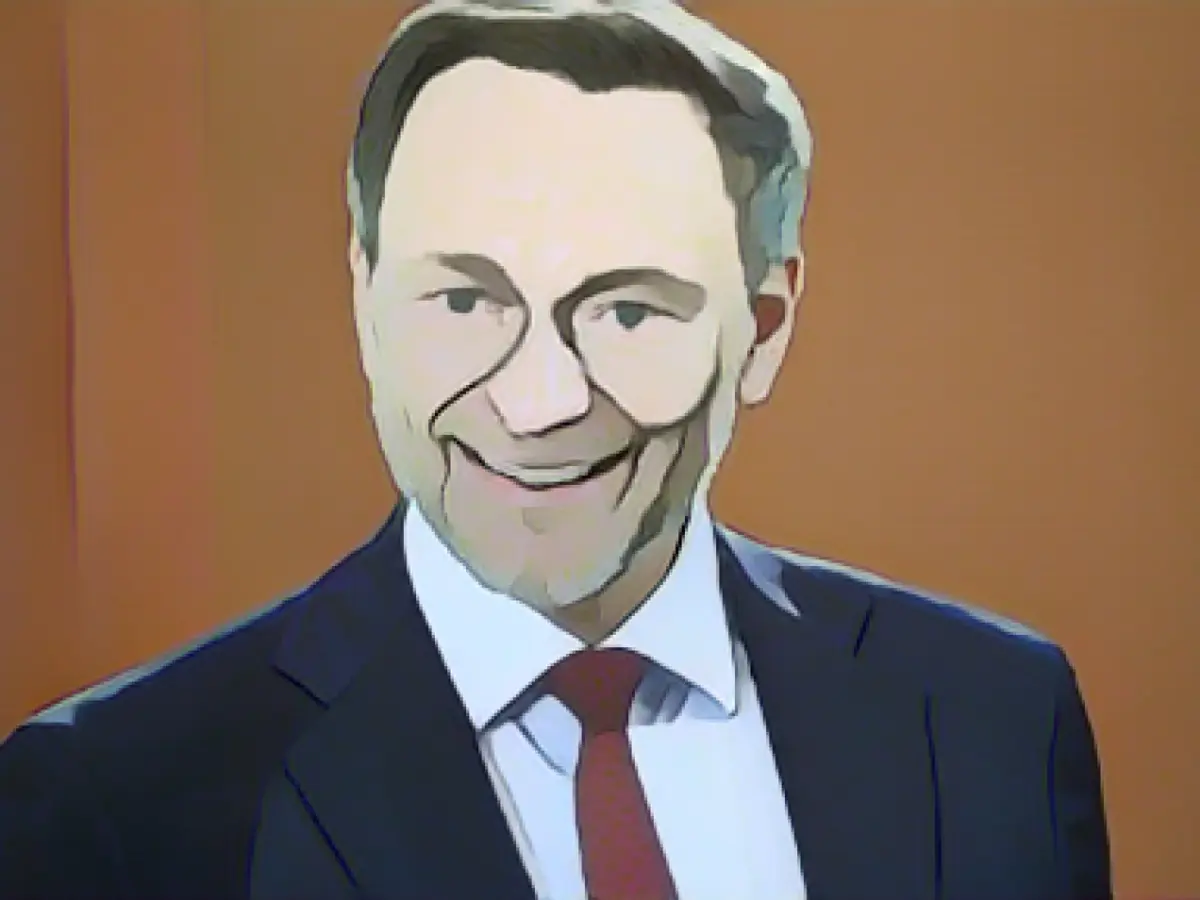Finance Minister Lindner wants to partially reform the debt brake next year
The calculation of the economic component is to be adapted to the "current state of economic research", explained Lindner. This will "change the range of fluctuation". Over several years, however, this will not increase the potential debt: "Because the greater leeway in the downturn will be recouped in the upturn."
The economic component states that taking out new loans is generally permitted in bad economic times, but that these must be repaid in better times. The amount of permitted net borrowing is calculated using special formulas.
No amendment to the Basic Law and therefore no two-thirds majority in the Bundestag and Bundesrat is required to adjust the economic component. As only the implementing laws of the debt brake need to be amended for this reform, the majority of the coalition of the traffic light coalition is sufficient.
On Friday, the Bundestag retroactively suspended the debt brake for 2023 and thus for the fourth year in a row. The traffic light coalition justified the measure with the consequences of the war in Ukraine for the energy markets and the Ahr valley flood. However, the suspension of the debt brake is a direct consequence of the Federal Constitutional Court's budget ruling in November, which made a supplementary budget necessary for 2023.
The Karlsruhe ruling also led to weeks of tough negotiations in the coalition with the traffic light coalition on the 2024 budget, for which a funding gap of 17 billion euros had to be filled. The coalition finally reached a compromise on Wednesday, according to which the gap is to be closed through a bundle of measures ranging from savings and tax increases to subsidy cuts.
The debt brake, on the other hand, is to be adhered to again next year as far as possible. However, Federal Chancellor Olaf Scholz (SPD) has not ruled out a renewed suspension should Ukraine 's military or financial situation deteriorate significantly.
The debt brake has been enshrined in the Basic Law since 2011. It obliges the federal and state governments to balance their budgets "in principle without income from loans". However, a suspension of the debt brake is permitted "in the event of natural disasters or extraordinary emergencies beyond the control of the state".
dja
Read also:
- This will change in December
- German activists speak out in Dubai on suffering in Israel and the Gaza Strip
- Despite UN vote: fighting between Israel and Hamas in the Gaza Strip continues
- Nuclear fusion - hype or solution to energy problems?
- In an editorial, Editorial Network Germany discussed Finance Minister Lindner's plans to partly reform the debt brake next year, stating that the changes will be based on the "current state of economic research."
- Christian Lindner explained that the adaptation of the economic component's calculation will "change the range of fluctuation," but it will not increase the potential debt in the long term.
- The adjustment to the economic component of the debt brake does not require a modification to the Basic Law or a two-thirds majority in the Bundestag and Bundesrat due to the nature of the reform.
- The Bundestag suspended the debt brake for 2023 in response to the consequences of the war in Ukraine and the energy market disruptions, but the coalition plans to adhere to it again next year as much as possible.
- Federal Chancellor Olaf Scholz has not ruled out a potential renewed suspension of the debt brake should Ukraine's military or financial situation deteriorate significantly.
- Despite these changes, the debt brake will continue to obligate the federal and state governments to balance their budgets in principle without income from loans, as enshrined in the Basic Law since 2011.
Source: www.stern.de







